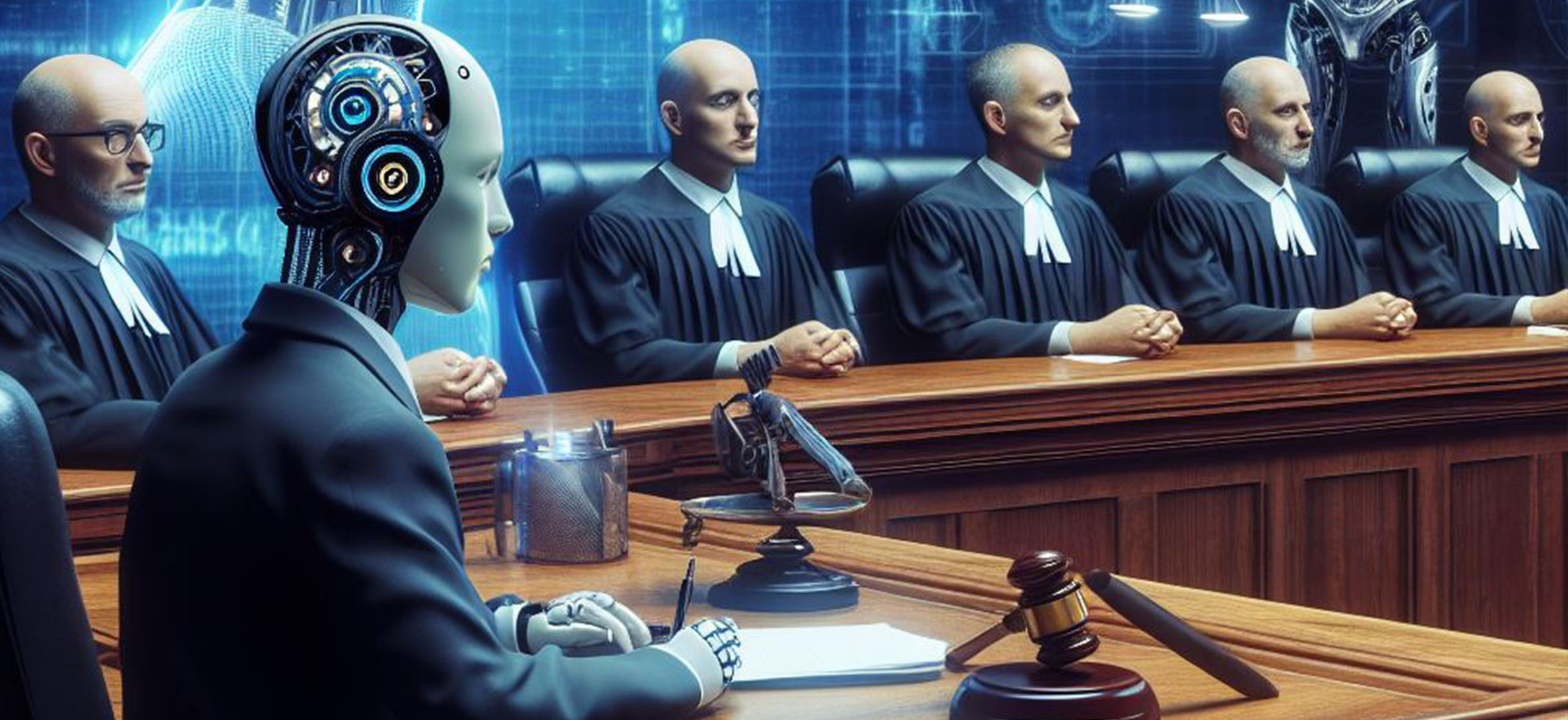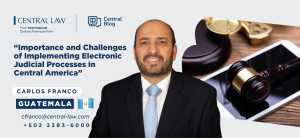Over the years, we have witnessed the advancement of technology and how it has become an essential element in people’s daily lives, being utilized in different domains such as homes, workplaces, and commerce. Hence, we may ask: Can the evolution of technology extend to the judicial realm?
In El Salvador, one of the early manifestations of technology usage in judicial processes can be found in the criminal sphere. By Legislative Decree No. 146 of 2015, reforms were made to Article 138 of the Criminal Procedural Code to regulate virtual hearings. Furthermore, years later, amidst the global Covid-19 pandemic, and in response to the need for mechanisms to adapt to current needs, Legislative Decree No. 679 of 2020 introduced reforms to the Civil and Commercial Procedural Code, stipulating the framework for conducting virtual hearings within the same legal body. This was seen as a tool to enhance the management and processing of legal proceedings and formalities.
This marked a significant advancement in the implementation of information and communication technologies within judicial processes in El Salvador and represented a small contribution to what technology can offer to the judicial realm. Currently, in the realm of technology, the trend has strongly favored the use of Artificial Intelligence (AI), which can be described as a field that combines computer science and robust datasets to enable problem-solving in a matter of minutes. Consequently, many countries have sought to implement the use of AI in judicial decision-making, as the development of Artificial Intelligence has reached a point where it can perform some of the analytical tasks and processing that judges undertake when making decisions.
An example of this is Argentina, which in 2017 developed the PROMETEA program, a system that applies AI to automatically prepare judicial opinions. Similarly, in 2019, Colombia, inspired by Argentina’s initiative, implemented a similar project aimed at contributing to the review process of tutelage rulings, stating that “The ‘intelligent’ tool automatically reads information from the judgments and selects priority cases for study.”
Furthermore, UNESCO has been a strong advocate for the use of AI in judicial processes, emphasizing the importance of considering the rapid advances in this field, the challenges and opportunities related to harnessing this tool, and its implications for human rights and the rule of law. In collaboration with UNESCO, the Supreme Court of El Salvador organized webinars in 2023 to educate the legal community about the challenges posed by the implementation of this new technological resource.
Similarly, in November 2023, El Salvador participated in the course titled “Artificial Intelligence and Rule of Law”, a training activity organized by UNESCO and the Training Center of the Inter-American Court of Human Rights, with the support of the European Union. This course aimed to provide judges, prosecutors, lawyers, and other stakeholders in the judicial sector worldwide with access to information and tools to understand and consider the benefits of Artificial Intelligence (AI) for their work, as well as to recognize its drawbacks and risks.
Although there is currently no judicial precedent confirming the use of AI in judicial processes in El Salvador, it is established that this is a reality that is not alien to us and that does not escape future implementation in our judicial system. It is a reality of which we must be active participants and objective in the face of the new challenges it presents. We must remain in constant learning and be critical to demonstrate the advantages and disadvantages that the implementation of AI represents in potentially resolving certain judicial cases where, due to their simplicity, it could contribute to greater expediency in our courts.
“Analyzing artificial intelligence from a rule of law perspective is fundamental to the administration of justice. Ethics in the development and use of AI is essential to ensure that these technologies are used beneficially for society as a whole. The rule of law can provide a framework for establishing ethical standards and codes of conduct in the field of AI.”
Alexander Leicht Director,
UNESCO Regional Office for Latin America and the Caribbean
Article written by:
Valeria Hernández
Associate
El Salvador




